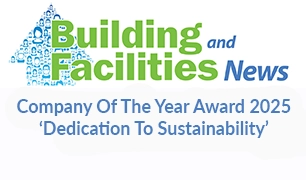What is “Net Zero”?
With greenhouse gases predicted to reach record highs by 2023 and no sign of slowing, the warnings of the impact of global warming and climate crisis are increasingly becoming apparent to all. As UN nations converge to address the fundamental issues of climate change, it has become a “front and centre” issue for UK businesses.
In 2008 the UK Government introduced the Climate Change Act legislating for change to reduce the UK’s greenhouse gas emissions by 80% by 2050 and then in 2019, increased the commitment to a 100% reduction which has come to be known as “Net Zero”.
“Net Zero” means that any emissions are balanced by absorbing an equivalent amount from the atmosphere. The Government’s current aggressive response is to drive positive movement across every sector to meet these goals, with a focus on domestic, commercial, transport, agriculture, and industrial usage across the UK.
The effects of Greenhouse gases
As we draw closer to 2023, the effects of global warming are undeniably present, with prior predictions becoming reality — loss of sea ice, accelerated sea level rise, and extremes of weather with heavier rainfall and flooding, plus longer, more intense heat waves leading to drought and wildfires.
The world was amazed by the effects of COVID-19 lockdowns on the environment as the global pause rapidly led to positive improvements, surprising even scientists at how we can truly meet our 0% emissions goals and begin to save our planet by 2050.
How can we meet these goals?
The possibilities of making these goals achievable are very high, and we can all make the smaller changes necessary to do so. However, change for the commercial sector comes with added complexity but also greater rewards. Heating and hot water have long been recognised as key contributors to emissions from across the built environment. They of course are also rightly regarded as business-critical services. Decreasing the use of fossil fuels to meet the “Net Zero” goal seems obvious, and “simply” changing to a more sustainable energy system can considerably reduce emissions. But there are other key business considerations to take into consideration, with everything from running costs to the capital investment required to modernise both building fabric and systems high on the agenda. Building regulations also play a major role in decision making, and there remains considerable confusion over what “green” technologies should be adopted and when…
Our name is derived from “Advantage Eco”, so it is fair to assume we firmly believe in the need for decarbonisation and the drive to attain Net Zero across the commercial environment before the 2050 deadline. That said, we are also 50-year adherents of the value of deploying gas in commercial hot water applications. This is because of the necessary high temperatures required for safe operation and the cost-effective operation it offers businesses. Like the rest of the UK’s gas-based service market, we have high hopes for the eventual introduction of green hydrogen-based alternatives to fossil gas, with potentially a much lower impact on existing infrastructure and simpler, more cost-effective like for like appliance replacement.
But we also recognize the limitations of a hydrogen-centric viewpoint, not least in terms of achieving national distribution on the scale currently expected by gas users. So, there must be real-world alternatives in play now if achieving Net Zero is going to become a commercial reality. From the proven capabilities of solar thermal systems supporting either gas or direct electric to low carbon air to waterside heat pumps and direct electric heating, there are clear paths of evolution open to organisations seeking to move onto the path to Net Zero. Our experience as a specialist creator of commercial hot water systems can help you as an organisation redefine the way your buildings consume energy and reduce your generation of harmful emissions without impacting critical offerings that define daily operation and the comfort and safety of staff and customers alike.
 Talk to Adveco today about how our team can help design hot water and heating applications that remain cost-effective to build and operate for a better future.
Talk to Adveco today about how our team can help design hot water and heating applications that remain cost-effective to build and operate for a better future.
Call our head office on 01252 551 540 or via our other contact channels.
















